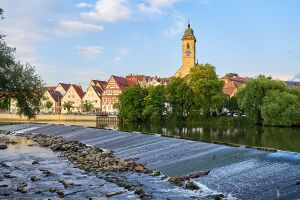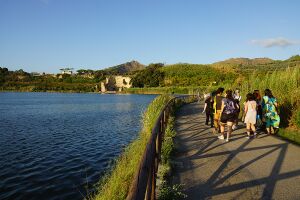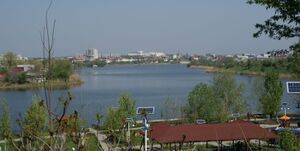WAVE Online Seminar 2021

An international online seminar offered by a European partnership of universities and NGOs
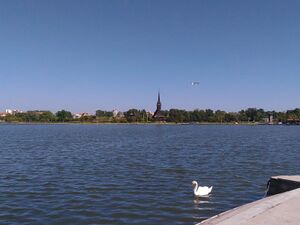
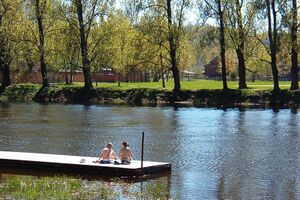
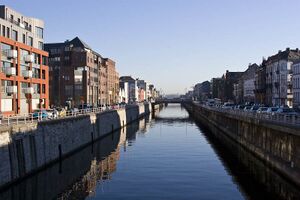
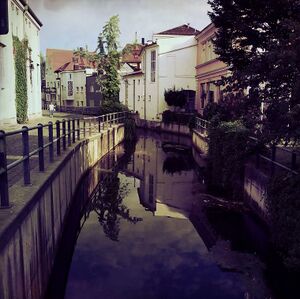
For whom is this course?
- Do you care about water in your city?
- Are you an architect who cares about sustainable development?
- Are you an urban or landscape planner who wants to make planning and design more inclusive and strategic?
- Are you a geographer who wants to work with other disciplines on a globally relevant landscape challenge?
- Are you curious about other people and their knowledge?
- Are you eager to get to know people from other places – academics like you but also citizens and their local issues?
- Do you believe in your capability to create something new?
Then join us in the WAVE online programme and living labs!
The WAVE programme aims at involving an interdisciplinary audience of students as agents of transformative change for the benefits of local water landscapes.
Goals of the WAVE Online Course
- In the light of the sensitive nature of water areas and their relevance to society, economy and the environment it is vital that planners and designers learn how to manage these territories in a sustainable way. WAVE Course participants will develop a profound understanding of the specific character of water areas. They will learn which driving forces are influencing the water landscape system and which impact types are most relevant for planning and design responses. This includes the global and European dimension since water areas are receiving increased attention worldwide.
- Learning in the WAVE programme is both theoratical and practical. The WAVE online course presents the theoretical and methodical foundations for sustainable planning and design of water areas. In parallel, participants engage in the WAVE Living Labs and learn how to involve local community into rhis learning process.
- The WAVE programm bridges analysis, strategy building and design by innovative ICT approaches, also known as Geodesign.
- Different approaches to strategy building, planning and design in the context of water landscapes will be introduced in the last phase of the course. On this basis, the course participants will be able to draft a strategy and a master plan for a water area taking economic, ecological and social aspects and current policies into account.
- In addition to the subject specific knowledge and methods the WAVE course further aims to foster transversal skills at various levels. This includes above all the following: virtual team work and creative application of ICT tools for international cooperation, team building and democratic leadership, analytical thinking, intercultural communication and creativity.
- The WAVE course wants to equip a future generation of planners and designers with relevant knowledge, methods and skills in order to transform our societies for sustainability.
Course Content
The online programme consists of twelve 90-minute sessions of lectures, reading materials, collaborative group work and other diverse active and passive learning tools.
The thematic elements of the course are designed to give students core knowledge for developing integrated planning and design approaches for water areas. This covers the following topics:
- Water as a dynamic phenonemon
- Water as a natural living space
- Water as a cultural space
- Water and People
- Water landscapes as dynamic and interrelated systems
- Goal setting and strategy building
- Nature-based solutions
- Water and Action
- Water and Design
Please also visit our reading list for further information.
Course Schedule: Online and On Site
- Online lectures will take place from 12.03. – 28.05.2021, with weekly sessions on Fridays from 15 00 – 16 30 pm CET.
- Schedules and activities of the local Livig Labs are communicated by the local Living Lab coordinators.
Course Assignment
- As the participants advance through the online course they will work in parallel on the water areas in their local living labs.
- These local learning processes are documented in the WAVE Working Groups page.
- The case studies will be documented with a case study template which is scaffolding this process.
- All along this process the individuals or local groups will collaborate with an international team. The interaction will consist of peer review, especially during phases 1 and 2, joint presentations and a joint planning and design process during phase 3.
- At the end of the seminar, the international teams will also reflect on their collaboration process and document their findings.
- In addition, there is a reading list for each session, participants are asked to study relevant materials in parallel to the course activities and add their theory reflections to the case study.
Conditions for participation and credits
Participation in this course is open to all spatial planning and design study programs and free of charge.
Academic recognition for successful completion will be as follows with a maximum of 8 ECTS:
- up to 5 ECTS for the online seminar (active participation)
- additional ECTS might be awarded based on the local living lab activities. This might be different at each partner university.
- Students need to seek individually for academic recognition at their respective universities
- there is usually at least one recognition opportunity at each university of the WAVE partnership
Participant numbers
There is no set limit regarding the number of participants in the online course. Any interested student, graduate or young professional is invited to attend. All participants who successfully complete the assignment will be issued a certificate on behalf of the seven academic institutions involved. Passive, listen-only participation in the online course is also possible, but no certificate will be issued for this participation mode.
Registration and deadlines
- Participation in the online seminar is free and open to students at any institution as well as the general public.
- Participation is possible in active or passive mode.
Active participation includes:
- registration before 11th of March 2021
- regular attendance of the online class (or working with the seminar recordings in due time)
- completion of the seminar coursework and group assignments
- academic recognition of up to 5 ECTS
Passive participation includes:
- registration can be done any time, but preferably before the first session.
- visitation of online seminar sessions either in real time or through video recordings;
- no academic recognition granted
Key dates
Online course
- Online lectures will take place from 12.03. – 24.05.2021, with weekly sessions on Fridays from 15 00 – 16 30 pm CET
- Parallel group work in local Living Labs
